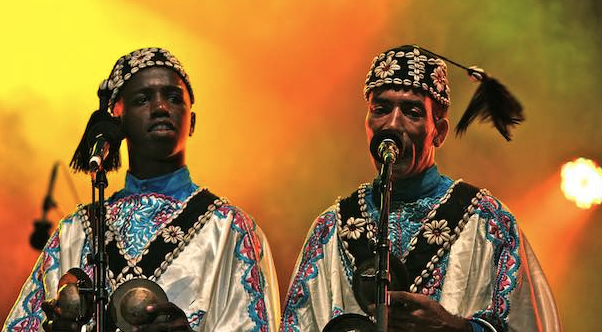The Moroccan Music with deep African roots
Gnawa music, also spelled as Gnaoua, is a form of traditional music that originated in Morocco, and is believed to have African roots. It is a unique musical genre that has gained significant popularity both in Morocco and beyond. The distinctive music is characterized by a fusion of rhythms, chants, and dance, with influences from sub-Saharan Africa, Islamic Sufism, and the Berber culture.
The origins of Gnawa music can be traced back to the arrival of sub-Saharan African slaves in Morocco during the 16th century. The slaves brought with them their musical traditions, which were gradually integrated with the local Berber and Arab cultures. Over time, the music evolved and developed into the unique and recognizable genre that it is today.
Gnawa music is associated with the Gnawa people, a community of descendants of sub-Saharan African slaves, who settled mainly in the southern parts of Morocco. The music is often performed during traditional rituals, such as the Gnawa spiritual ceremony, where the Gnawa musicians perform trance-like rhythms and songs that are believed to have healing properties.
In addition to its spiritual and cultural significance, Gnawa music has gained popularity among contemporary musicians and audiences, both in Morocco and abroad. Today, Gnawa music festivals, such as the Essaouira Gnawa and World Music Festival, attract artists and fans from all over the world, contributing to the promotion and preservation of this unique musical genre.
Gnawa music has also had an impact on other musical styles, with many artists incorporating Gnawa elements into their compositions. The fusion of Gnawa music with other genres has resulted in new and exciting musical expressions, while still maintaining the essence and soul of Gnawa music.
